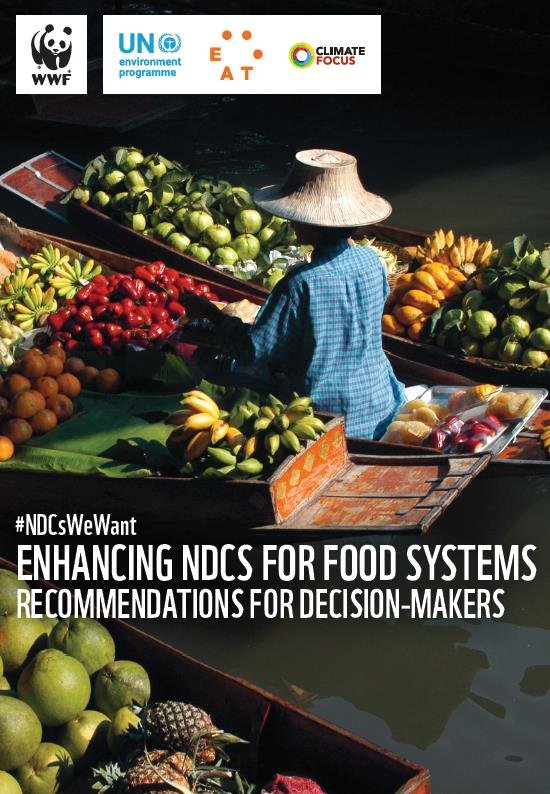 Read this article in French
Read this article in French- Share this article
- Subscribe to our newsletter
Enhancing Nationally Determined Contributions (NDCs) for Food Systems
Countries are missing significant opportunities to reduce greenhouse gas emissions, the report Enhancing Nationally Determined Contributions (NDCs) for Food Systems states. The authors identify 16 ways policymakers could take more action, from farm to fork. The report was published in early September 2020 by the Worldwide Fund for Nature (WWF), the UN Environment Programme (UNEP), EAT and Climate Focus.
Currently, diets and food loss and waste are widely ignored, but by adding them to national climate plans, policymakers can improve their mitigation and adaptation contributions from food systems, by as much as 25 per cent. Under the 2015 Paris Agreement, countries are expected to revise or resubmit their NDCs every five years. This year, therefore, policymakers have the opportunity to adopt food systems solutions and also set more ambitious targets and measures to reduce greenhouse gas emissions and in turn, improve biodiversity, food security and public health.
Food systems account for up to 37 per cent of all greenhouse gas emissions
Food systems – which gather all the elements and activities that relate to the production, processing, distribution, preparation and consumption of food – account for up to 37 per cent of all greenhouse gas emissions; continuing on a business-as-usual trajectory will single-handedly exhaust the 1.5oC compatible emissions budgets for all sectors.
Although 89 per cent of NDCs mention agriculture production, agriculture-emissions-reduction targets are mainly included in wider land-use targets. More notably, other actions in the food system, such as reducing food loss and waste, or shifting to more sustainable diets, are widely ignored despite presenting the combined opportunity to reduce emissions by as much as 12.5 Gt CO2e - the equivalent of taking 2.7 billion cars off the road.
16 actions from farm to fork
The 16 actions identified in the report include reducing land-use change and conversion of natural habitats, which could reduce emissions by 4.6 Gt CO2e per year. In comparison, reducing food loss and waste, which accounts for 8 per cent of all GHG emissions, could reduce emissions by 4.5 Gt CO2e per year.
Yet only 11 countries currently mention food loss in their plans, and none consider food waste. Improving production methods and reducing methane emissions from livestock, could reduce emissions by up to 1.44 Gt CO2e per year. Much greater reductions could be achieved by shifting to healthier and more sustainable diets with a higher proportion of plant-based than animal-based foods, which could avoid emissions of up to 8 Gt CO2e each year. No current national climate plans explicitly discuss more sustainable diets.
Food loss and food waste are still ignored
The report finds that developed countries are less likely than developing countries to provide sector-specific mitigation actions for agriculture in their current climate plans, though in absolute terms, the number of specific actions for reducing emissions in the food system in developing countries is also low.
Through August 2020, 15 NDC updates and revisions have been submitted and although some feature agriculture, actions are still lacking. Early indications are that sustainable food consumption and food loss and waste will continue to be ignored in the review process. None of the updates and revisions submitted mention them in their mitigation contributions or policies and measures.
(UNEP/ile)
Read more and download the report at UNEP website





Add a comment
Be the First to Comment